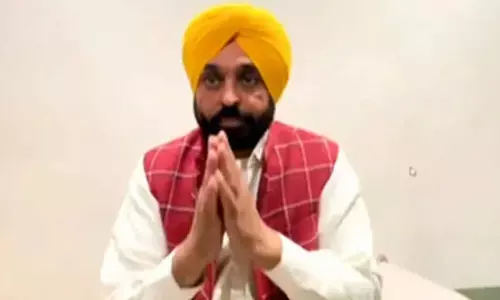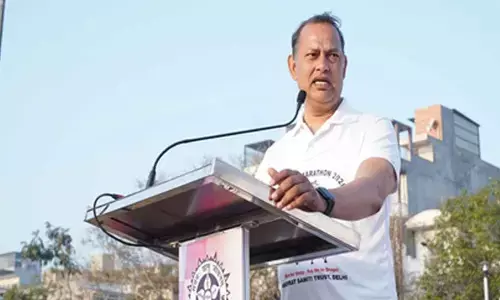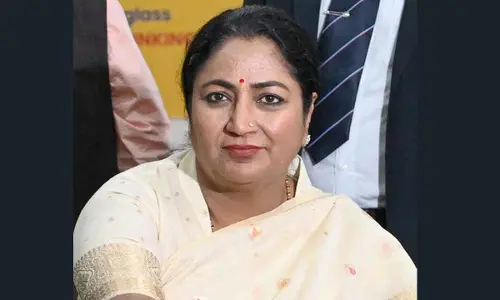SC ruling on AICTE surprises MHRD, UGC

Supreme Court ruling on AICTE surprises MHRD, UGC. Supreme Court’s interim orders restoring the powers of All India Council of Technical Education (AICTE), the technical education regulator has created an unusual situation, disconcerted a hitherto developing alternative mechanism.
Legal opinion sought over restoration of powers to tech regulator
Confusion prevails over UGC's recent moratorium
Lack of coordination rules central bodies
Interim orders impermissible under law: pvt colleges
 Hyderabad: Supreme Court’s interim orders restoring the powers of All India Council of Technical Education (AICTE), the technical education regulator has created an unusual situation, disconcerted a hitherto developing alternative mechanism.
Hyderabad: Supreme Court’s interim orders restoring the powers of All India Council of Technical Education (AICTE), the technical education regulator has created an unusual situation, disconcerted a hitherto developing alternative mechanism.In a case filed by Odisha Technical Colleges Association (OTCA), the apex court has directed that the AICTE to deal with the permissions of technical colleges. A two-judge bench comprising Justice R M Lodha and Justice Kurian Joseph said on April 17 that "AICTE shall now proceed in accordance with the approval process handbook for the 2014-15 academic year, in so far as members of the petitioner association and all colleges and institutions situated similarly to the members of the petitioners' association."
Experts said that this judgment has in a way contradicted the ruling the Supreme Court pronounced on April 25 last year totally annulling the AICTE powers to issue permission to MBA colleges as well as technical institutions.
Following this order, the Ministry of Human Resources Development (MHRD) has directed University Grants Commission (UGC) to handle the issues of granting permissions to private engineering, MBA and MCA colleges in the country.
UGC formed a three-member panel to prepare guidelines for the issuance of permissions to new technical colleges in the country. Prof. D N Reddy, a member of UGC and presently holding the chairmanship of RAC, was also made one of the members of this committee. This panel has prepared the guidelines and submitted to MHRD which has immediately given its stamp of approval. But the guidelines were not notified in the Gazette.
As nearly 25-30 per cent of seats in all technical institutions have remained vacant, the UGC has imposed a one-year moratorium recently on fresh approvals for new colleges and also additional intake in subjects in all colleges.
Since the UGC is the main authority now, the power of universities which come under the UGC’s purview has gone up in so far as permissions, inspections, reports of tech institutions- which were affiliated to them- are concerned.
Now with the latest Supreme Court order, all this process has gone awry, experts opine.
“The Odisha case does not encompass the entire country. It merely relates to the continuance of Approval Handbook of that state. Moreover, in this particular case, none from either MHRD or UGC were represented. The court which has ruled that AICTE does not have powers last year, cannot say that it has the powers and can issue licenses this year,” a senior member of AICTE felt.
Reports say that senior official of the MHRD, R P Sisodia, who is in-charge of UGC and Prof. Ved Prakash, Chairman of the UGC ‘were unaware’ of the verdict. Senior officials of both MHRD and UGC- are now huddled in meetings and reportedly veering round to taking legal course on the unexpected whack. The officials are meeting again on Thursday to chalk out further course of action.
Lack of coordination among various bodies of MHRD has a telling effect on several issues. No meeting with regard to this contentious issue was arranged in recent past, sources said.
Meanwhile, the private engineering colleges were also expressed surprise over the verdict. “The Supreme Court could not have extended AICTE jurisdiction to institutions, which are not before the Court and who do not wish to be governed by the AICTE. It does appear that all the circumstances touching upon the case law have not been apprised to the Court,” KVK Rao, Founder Chairman of the St Mary Group of Institutions said. “It would be a good case for impleading in the said SLP for those institutions which do not want their institution to be governed by AICTE. I am of the considered view that the interim orders passed by Supreme Court are impermissible in law and AICTE cannot go further,” he added.
Next Story








